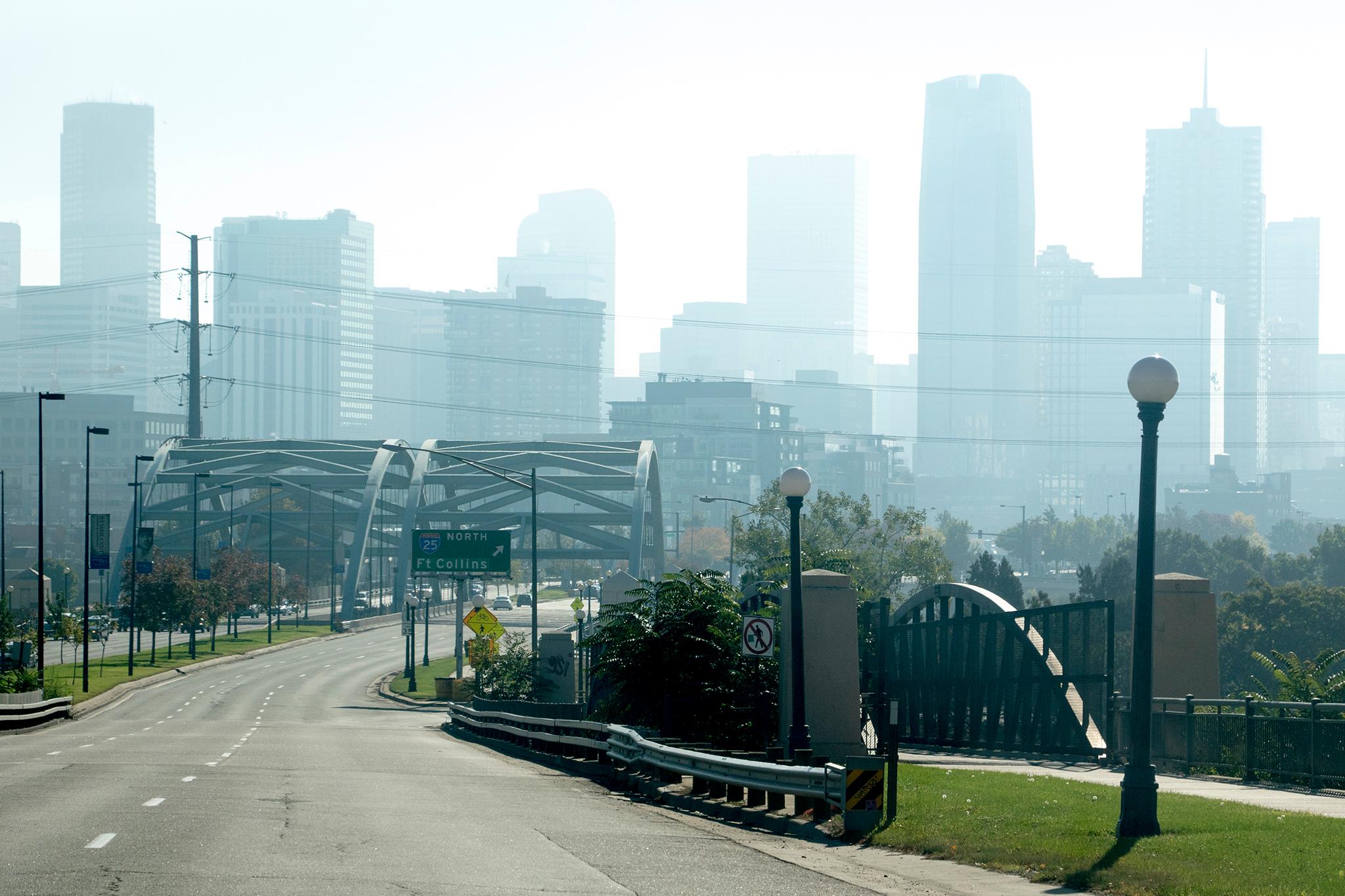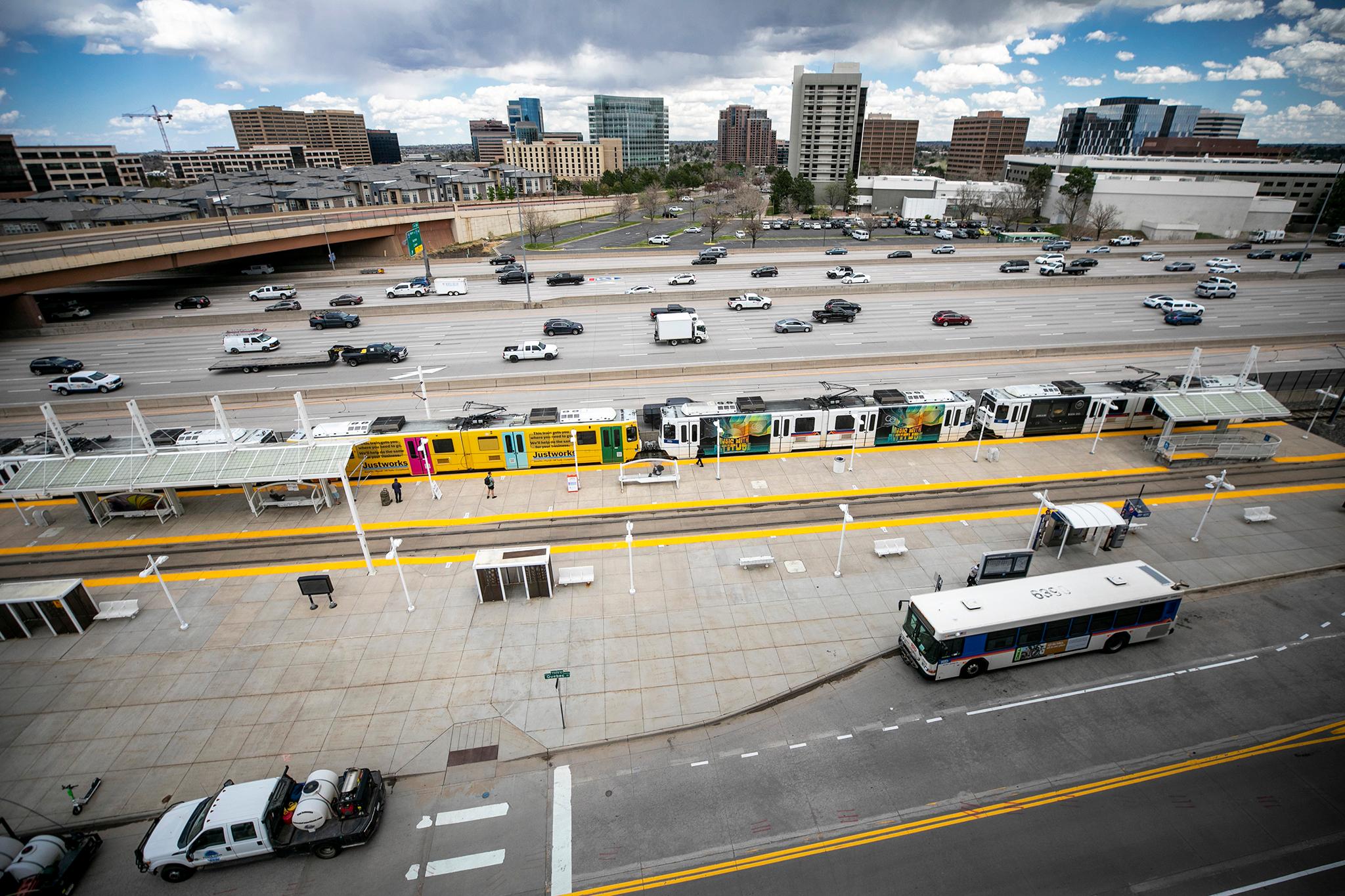
Colorado Democrats tried to bring climate policy closer to home this year.
Since winning control of state government in 2018, state Sen. Chris Hansen, D-Denver, said lawmakers spent their first few legislative sessions focused on transportation and the electricity sector. This year, policymakers turned their attention to the places people live and the air they breathe.
“There was a big focus on the built environment and then there was a separate substantial effort to improve local air quality,” Hansen said.
Those efforts weren’t just focused on reducing emissions. Weeks before the legislative session, the Marshall fire destroyed more than 1,100 homes in Boulder County, raising questions about how to harden cities and suburbs against climate-fueled wildfires. The ongoing drought across the West further pressed concern over water resources.
Not all of those debates resulted in policies now headed to Gov. Jared Polis’ desk. Here’s an overview of climate bills and whether they survived (✅), died (⛔) or passed with an uncertain outcome (?).
Air quality investments
✅ Fund incentives for clean transportation and industry.
Polis identified poor air quality as one of his main priorities ahead of the legislative session. Democratic lawmakers answered with a raft of policies designed to cut pollution.
The centerpiece is a $124 million package dedicated largely to cleaning up the transportation sector. The legislation sets aside $65 million to help pay for electric school buses. Other grant programs will fund community electric bicycle programs, zero-emissions trucks and voluntary projects to reduce pollution from industrial sources.
✅ Fund free public transit during part of the ozone season.
Another $28 million bill aims to reduce driving by funding free transit during the summer ozone season. The Regional Transportation District plans to use its portion to eliminate fares in August 2022 and 2023, but it's unclear if the plan will really help reduce summertime smog. A similar effort along the Front Range in the 1970s didn't help improve air quality.
✅ Bolster state air regulators to crackdown on ozone.
This year's budget package also adds $43.4 million for Colorado's Air Pollution Control Division, providing funds for 83 additional full-time positions. Those extra staffers will help the state as the U.S. Environmental Protection Agency reclassifies the Front Range as a "severe" ozone violator, which will require more oversight of smaller smog sources, like breweries and oil and gas sites.
? Regulate air toxins better than the EPA.
Ozone wasn’t the only focus for lawmakers. Legislation to control hazardous air toxins won final passage in the closing days of the session. It targets 188 pollutants the federal government sees as hazardous but doesn’t directly regulate under the U.S. Clean Air Act.
The plan faced opposition from Xcel Energy, Suncor Energy — a financial supporter of CPR News — and other businesses with heavy industrial operations in urban areas. As it moved through the capitol, lawmakers amended the legislation to turn a state program to consider toxins when permitting pollution sources into a study. A last-minute amendment also gave the legislature the final say over health-based ambient air quality standards for priority toxins.
Despite those changes, State Sen. Julie Gonzales, D-Denver, said the plan remains a win for communities of color most affected by air pollution.
“We had to make concessions along the way but the health and safety of our children and our communities — when we know corporate polluters are spewing toxins into the air — it’s worth it.”
Gonzales said she hopes the governor signs the legislation, but she isn’t taking anything for granted.
Building for a hotter planet
✅ Require that new buildings are more energy efficient and ready for renewables.
After narrowly surviving in the state House, a bill to reduce the carbon footprint of buildings flew through the state Senate in the closing hours. The legislation sets statewide minimum construction standards, requiring cities and counties to approve building codes to ensure future structures are efficient and ready for solar panels and electric vehicles.
The Colorado Energy Office joined environmental groups to push the legislation, saying it would align building codes with state climate goals and save Coloradans money on energy bills. But concerns about housing affordability nearly derailed the effort. With construction prices spiking around the state, homebuilders and apartment owners claimed the policy would further drive up rents and home prices.
✅ Make manufacturers pay to recycle their products.
Another hard-fought bill aims to put recycling bins on far more Colorado curbs. The legislation would require companies to pay fees based on the type of packaging on their products. That money would be funneled through a new nonprofit organization to waste haulers.
Supporters hope the plan will boost Colorado’s dismal 16 percent recycling rate, but opponents have claimed the structure is unconstitutional and have raised the possibility of lawsuits. Their opposition wasn't enough to stop the plan, which passed in the session's final hours.
✅ Pay people to rip out their lawns.
State legislators passed a bill that requires the Water Conservation Board to set up a program that would offer financial incentives to people who replace their lawns with water-friendly landscaping. Local governments, Native American tribes and nonprofit organizations could also apply for grants to fund their own lawn-replacement programs.
Other states across the West have enacted similar programs that have saved billions of gallons of water. Nevada’s program offers $3 per square foot of grass that's removed and replaced with desert landscaping.
⛔ Ban gas-powered lawn equipment.
State Sen. Chris Hansen began the session with a sprawling climate bill designed to kickstart climate efforts around carbon sequestration and agriculture. The most controversial provision addressed gas-powered lawn equipment. Under the original version of the legislation, the sale of those products would have been banned along most of the Front Range starting in 2030.
Democrats quickly dropped the ban, leaving tax rebates for electric lawn equipment in place. Those incentives also didn’t survive. In the waning hours of the session, Hansen said Republican filibusters forced legislative leaders to drop the bill entirely.
“I am deeply disappointed, but I'll bring it back next year and try to move it as quickly as possible so that it can't be held hostage,” Hansen said.
Wildfires, disasters and water
⛔ Give the state authority to regulate how homes, businesses and properties are built in wildfire-prone areas.
Lawmakers did not advance legislation to enact a proposal from the Colorado Fire Commission creating a powerful new authority that would adopt and enforce new statewide regulations on construction, development and land use in some of the most wildfire-prone parts of the state.
Language for the proposed wildfire code board was drafted in an amendment considered for the disaster preparedness bill. Still, lawmakers didn’t move to add it, saying they didn’t have enough time to fully consider the proposal, which attracted strong pushback from groups like Colorado Municipal League and Colorado Counties, Inc., which worried the state board would enact costly, unnecessary and complicated rules and usurp the authority of local governments.
⛔ Hire more wildfire investigators.
The legislature voted down a bill to hire more wildfire investigators and give the Division of Fire Prevention and Control millions in additional funding each year for such investigations. CPR News found that the cause of most of the human-caused fires in Colorado is unknown and that those cases are often led by local agencies that don’t have trained or full-time wildfire investigators.
✅ Make it easier, cheaper to rebuild — and rebuild greener — after a climate disaster.
Lawmakers approved legislation that creates a new disaster rebuilding office that will provide loans, grants and other incentives to help homeowners, renters, business owners and other organizations rebuild after wildfires and other climate disasters.
If signed, the bill would also reimburse local governments for disaster costs that aren’t covered by federal programs and provide loans, grants and other incentives to encourage people to rebuild with more energy-efficient and climate-friendly buildings.
The bill also creates a new climate preparedness office that would coordinate disaster recovery and oversee climate disaster planning; creates a new statewide wildfire dispatch center; and directs insurance regulators to prepare a report on the stability, availability and affordability of homeowner's insurance.
✅ Buy and “retire” wells to keep water in struggling aquifers.
The Colorado legislature unanimously voted to set aside $60 million of federal COVID relief money from the American Rescue Plan Act to create a fund to help water users in two river basins meet groundwater sustainability targets.
The bill creates the groundwater compact compliance and sustainability fund, which the Colorado Water Conservation Board will administer. The money would buy and retire groundwater wells used to irrigate farmland in the Rio Grande River basin in the south and the Republican River basin in the east. If the state buys and retires those wells, that water stays in the underground aquifers that are struggling to keep up with drought and overuse.
In the San Luis Valley, some groundwater well users are mandated to cut back pumping because too many wells are all pulling from the same groundwater source. Chris Ivers, the program manager for two subdistricts in the Rio Grande Water Conservation District, said farmers and ranchers have levied property taxes on themselves to fund similar local efforts to meet groundwater sustainability goals.
“It’s very hard on the local economy and local producers,” Ivers said. “So any outside funds we can leverage to help get there reduces the burden on these individuals who are paying these fees.”
Ivers said that $30 million for the San Luis Valley to help with those efforts is a “huge step in the right direction for us.”








